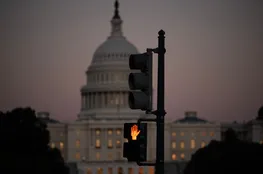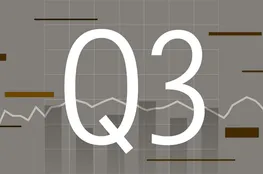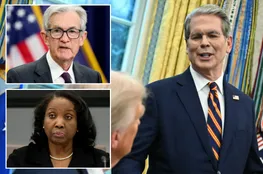BlackRock CIO Rick Reider recently stated that "There is no reason why you wouldn't just end QT," signaling a potentially significant shift in expectations regarding the Federal Reserve’s monetary policy. Reider, as the CIO of BlackRock’s Global Fixed Income division, offers a critical perspective on the upcoming Federal Open Market Committee (FOMC) meeting scheduled for Wednesday, June 18, 2025, at 1800 GMT (1400 US Eastern time). This meeting is anticipated to be pivotal in determining the future course of monetary policy, particularly concerning quantitative tightening (QT), the Fed’s ongoing effort to reduce its balance sheet. The discussion surrounding QT is deeply intertwined with broader economic concerns, including the impact of Trump-era tariffs on inflation and the potential for companies to pass these levies onto consumers. Currently, the data suggests that tariffs haven’t yet translated into a substantial increase in U.S. inflation, a factor contributing to the Fed’s cautious approach. However, the situation is evolving, and analysts are closely watching whether companies will eventually begin to pass tariffs through to consumers, a move that could reignite inflationary pressures. Furthermore, the labor market is exhibiting signs of softening, which, coupled with potential tariff-related price increases, could prompt the Fed to reconsider its current wait-and-see stance on interest rates. The FOMC’s decision on QT is directly linked to this assessment.
The FOMC’s upcoming statement and Chair Powell’s subsequent news conference will provide crucial insights into the Fed’s thinking. Investors and economists will be scrutinizying the statement for any indications regarding the timeline for ending QT. The Fed’s decision will not only impact bond markets but also have broader implications for the economy, influencing borrowing costs, investment decisions, and overall economic growth. The statement will likely address the ongoing concerns about inflation, the potential impact of tariffs, and the Fed’s strategy for navigating these challenges. Following the statement, Chair Powell is expected to hold a news conference, offering further clarification and answering questions from the media. This event will be closely monitored for any hints about the Fed’s future policy intentions. The combination of the FOMC statement and Powell’s news conference represents a critical moment for the financial markets, as investors attempt to anticipate the Fed’s next move and assess the potential impact on their portfolios. The data surrounding tariffs continues to be a key factor, and the Fed's ability to accurately gauge their effects will be paramount in determining the trajectory of monetary policy. Ultimately, the FOMC’s decision on QT will be shaped by a complex interplay of economic data, policy considerations, and market sentiment. The upcoming meeting promises to be a significant event, setting the stage for further developments in the months ahead.
























